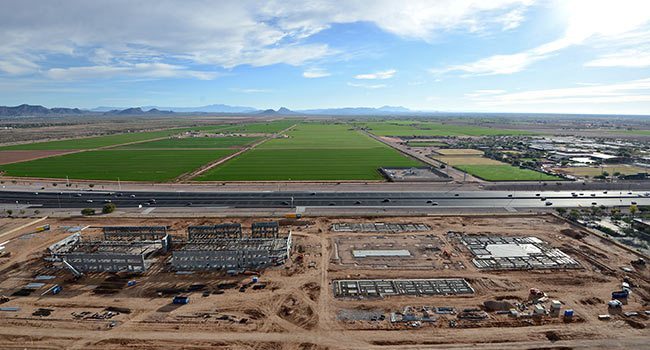A July 2016 article by Matthew S. Robinson in “Indian Gaming” magazine identified a 35-percent increase in the construction of spas in Indian Casinos between 2010 and 2016.
Indeed, many Indian Tribes are developing their lands with projects that support their casinos, or projects that simply diversify their economy and drive economic development in general. In addition to spas, such projects include hotels, golf courses, conference centers, shopping centers and sports and entertainment complexes. Some of these non-casino projects occur on tribal land (land held for the benefit of the tribe at large), while others occur on allotted land (land held for the benefit of individual landowners).
Whether developed on Tribal land or allotted land, these projects tangibly demonstrate the Tribe’s sovereignty. This is particularly true when the Tribe is self-funding and self-regulating the project. This exercise of Tribal sovereignty through land development also creates many opportunities for the Tribe and its business partners. Here are a few examples.
First, some Tribes may choose to joint venture in a development project with an established business partner, such as a hotelier or retail franchisor. Other Tribes may choose to hire their own team to run the business. Similarly, the development may create opportunities through build-to-suit pads or building leases for a wide-ranging assortment of businesses — retailers, offices, restaurants, and manufacturers, to name but a few.
Second, just as in developments outside of an Indian reservation, revenues received from the businesses in those developments are subject to various taxes. A threshold question for the Tribe as developer is to whom those taxes are to be paid. While the state, county and cities are happy to receive their share of sales taxes, a Tribe, as a sovereign nation, can enact its own tax ordinance. Many Tribes with economic development projects have such an ordinance, which directs those businesses to remit certain taxes to the Tribal government itself. The tax revenues received from these business can in turn help the Tribe fund on-going programs and future projects.
Third, because these businesses are in Indian Country, the Tribe has varying levels of jurisdiction over the businesses for building code enforcement, law enforcement, public safety and more. While the Tribe has the general responsibility and authority over these roles, the Tribe may choose to partner with outside agencies or businesses for help in providing such services.
These are just some of the opportunities a Tribe can address when developing a project on its reservation. While these issues can be complex, none of these issues are impossible, though they often require expertise to work through them. The tribe, in its sovereignty, can address these matters as it sees fit. Through land development, the tribe can manifest its sovereignty in many ways, create revenue and tax streams, and create opportunities for businesses in that project and for experts to help the Tribe develop the project.




